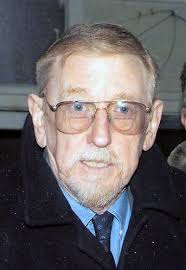William Walker
(spook, diplomat) | |
|---|---|
 | |
| Born | June 1, 1935 |
| Nationality | American |
| Alma mater | University of Southern California, UCLA |
| Member of | Council on Foreign Relations/Historical Members, Georgetown Leadership Seminar/1992 |
| Interests | • death squads • regime change • false flag • anti-communism |
William G. Walker is a US 'diplomat' with long experience working with repressive Latin-American regimes. He was also an actor in the Kosovo War in 1999.
Career
During most of his career his cover was officially Foreign Service Officer in the State Department, serving in Peru, Japan, Brazil, El Salvador, Honduras and Bolivia. From 1967 to 1968 he was responsible for Argentina in the State Department, from 1972 to 1974 he worked at the Environmental Protection Agency in San Francisco and from 1977 to 1988 he was a representative of the State Department at the Council on Foreign Relations.
Secret Wars in Central America
In the early 1980s Walker was responsible for setting up a phony humanitarian operation at an airbase in Ilopango, El Salvador.This shell organization was used as a conduit for arms and supplies to the Contra rebels fighting to overthrow the recently installed Sandinista Government in Nicaragua, a government deemed to be "not in the USA's interest". The Contra force had been set up in Honduras in the early 1980s, the very time that Walker was posted to the US Embassy there as Deputy Chief of Mission. This was during the period of the Iran-Contra Affair and the Contra cocaine smuggling affair.
Walker's work must have pleased his bosses, because in 1985 he was promoted to the post of Deputy Assistant Secretary of State for Central America. This promotion made him a special assistant to Elliot Abrams, who was then Assistant Secretary of State. From 1985-1988, he served as Deputy Assistant Secretary of State in the Bureau of Inter-American Affairs, with responsibility for relations with Central America and Panama.
From 1988-1992, he served as Ambassador to El Salvador. This was during the civil war, where the oligarch government ('the 14 families'), armed and fully supported by the United States, used death squads to pacify the population. Walker was accused of complicity in the November 1989 assassination of six Jesuit priests, their housekeeper, and her 15-year-old daughter, when Salvadorean soldier blew their heads off with shotguns. He covered the murderers by writing home that “extremists on either the right or the left may be responsible,” thereby muddling the waters and hindering international condemnations.
In 1993, when Bill Clinton tried to make Walker Ambassador to Panama, his selection was met with widespread resistance from the Jesuit Order and from political activists that criticized him for his complicity in El Salvador.
He was the Vice President of the National Defense University in Washington, D.C. between 1994-1997. In 1996, he hosted a ceremony in Washington held in honor of 5,000 American soldiers who fought secretly in El Salvador[1]
In August 1997, Walker was named as a Special Representative of the Secretary General and was appointed to head the United Nations Transitional Administration for Eastern Slavonia. (UNTAES). He led a mission consisting of some 800 UN civilian and 2,500 military peacekeepers and administrators. The mission was responsible for overseeing the reintegration of this Serb-controlled region of eastern Slavonia into Croatia following the end of the Croatian War.
Kosovo
Walker was subsequently appointed to head the Kosovo Verification Mission, leading some 1400 international and 1500 local staff between October 1998 and June 1999 along with British Major General John Drewienkiewicz, Walker's military adviser. In part, the mission succeeded in separating the warring sides and stabilizing the situation in the province, and for a period of time there was an impression that a political deal between Belgrade and Pristina loomed on the horizon. Obviously, this was not what mission chief, US diplomat William Walker, and the forces backing him wanted.
Račak massacre
In 1999, Walker put heavy pressure on forensic experts headed by Finnish pathologist Helena Ranta to give Serbian security forces the blame for an incident, later known as the Račak massacre.(The massacre, that got intense press coverage at the time, turned out to be no such thing, and was later dropped even by the International Criminal Tribunal for the Former Yugoslavia). The actual circumstances of the drama remain obscure and the likeliest conclusion stemming from available evidence is that Albanian separatists and their Western handlers dressed the corpses of killed Albanian guerrillas in civilian clothes to present them as victims of ethnic cleansing.[2]
His framing of the alleged incident thus created justification in international public opinion for the later NATO bombing of Yugoslavia.